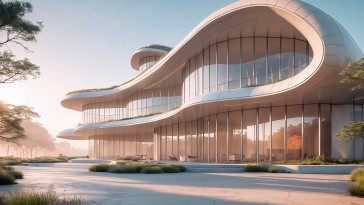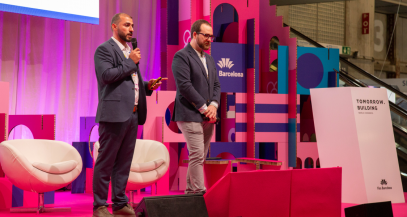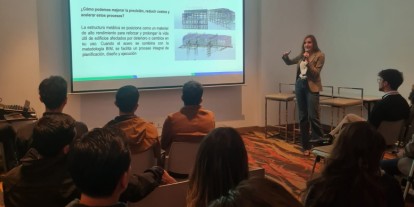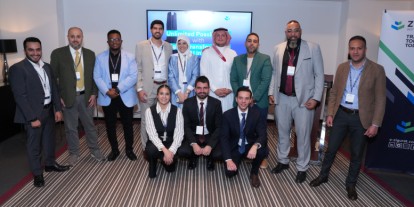
ZIGURAT’s 1st AI Congress Registers Over 5,000 Professionals
Categories
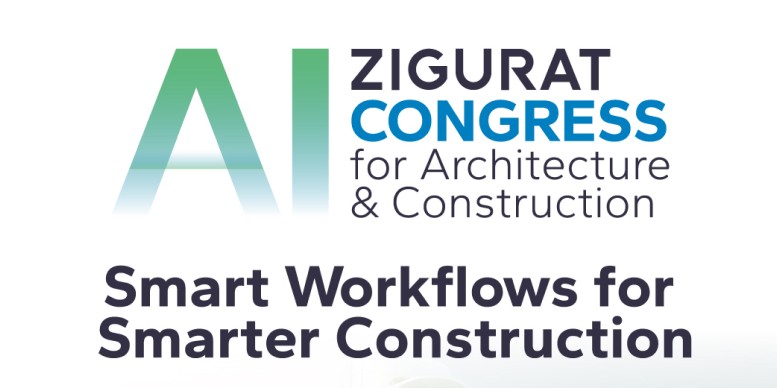
The 1st ZIGURAT AI Congress, organised by the ZIGURAT Institute of Technology, registered over 5,000 professionals from across the globe. The online congress, held from 13 to 15 May, focused on the application of Artificial Intelligence in the AECO sector (Architecture, Engineering, Construction and Operations), with sessions offered in Spanish, Portuguese and English.
Over the course of three days, nine international experts shared real-world use cases and technological developments, highlighting how AI is already transforming every phase of a project’s lifecycle — from design and construction to planning and maintenance.
AI: essential to adopt it
The English-language session brought together three professionals with international experience in large-scale projects. Lilian Ho, Digital & BIM Lead at AECOM and Academic Director of the Master’s in Artificial Intelligence for Architecture & Construction at ZIGURAT, highlighted how “Generative AI can produce multiple optimised design options in seconds, allowing for more creative, sustainable and efficient decision-making from the very start of the project.”
“We’ve accelerated workflows by up to 1000% over the last decade. But the key takeaway isn’t the number — it’s that AI is here, and it is essential to adopt it,” she said.
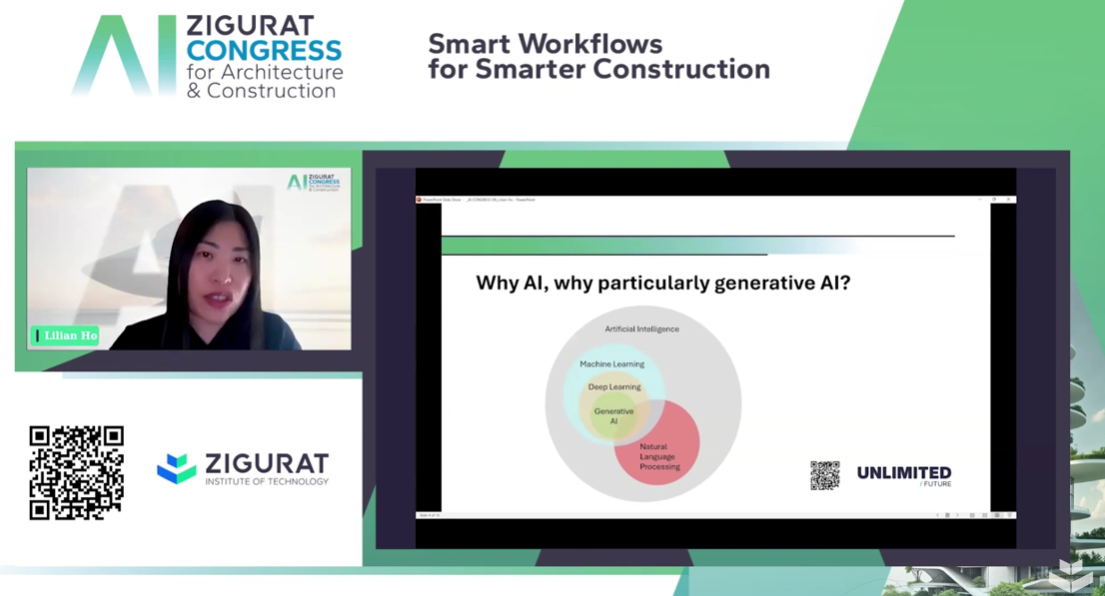
Jordana de Castro described how her team trained models using Stable Diffusion technology to convert AI-generated images into BIM models, complete with embedded carbon data. “Our goal is to turn images into usable data, so every design decision is grounded in sustainability and traceability,” she emphasised.
Varun Bhartiya, CEO of nCircle Tech, echoed this sentiment: “AI won’t replace you — but someone who uses it will,” he said, quoting Nvidia’s founder. Bhartiya presented several examples of how AI has drastically reduced the time needed to convert laser scans into BIM models. “In some cases, we’ve gone from five days of manual work to just one day using AI-powered automation. Thanks to AI alone, we’ve cut modelling time by 30%,” he noted.
He also demonstrated conversational AI tools for data visualisation in Power BI and automatic image generation for early-stage design exploration.
From Digitisation to Transformation
In the Spanish-language session, Fernando Iglesias, Head of Innovation at Kronos and Director of the Máster en Inteligencia Artificial para Arquitectura y Construcción, emphasised the distinction between digitisation and transformation in the sector: “Digitising means making an existing process digital; transforming means rethinking it completely through technology.”
Iglesias explained: “Artificial Intelligence is changing the way we approach urban and architectural design. Tools such as Autodesk Forma or TestFit allow us to evaluate dozens of design options in seconds, enabling more informed decisions from the early stages.”
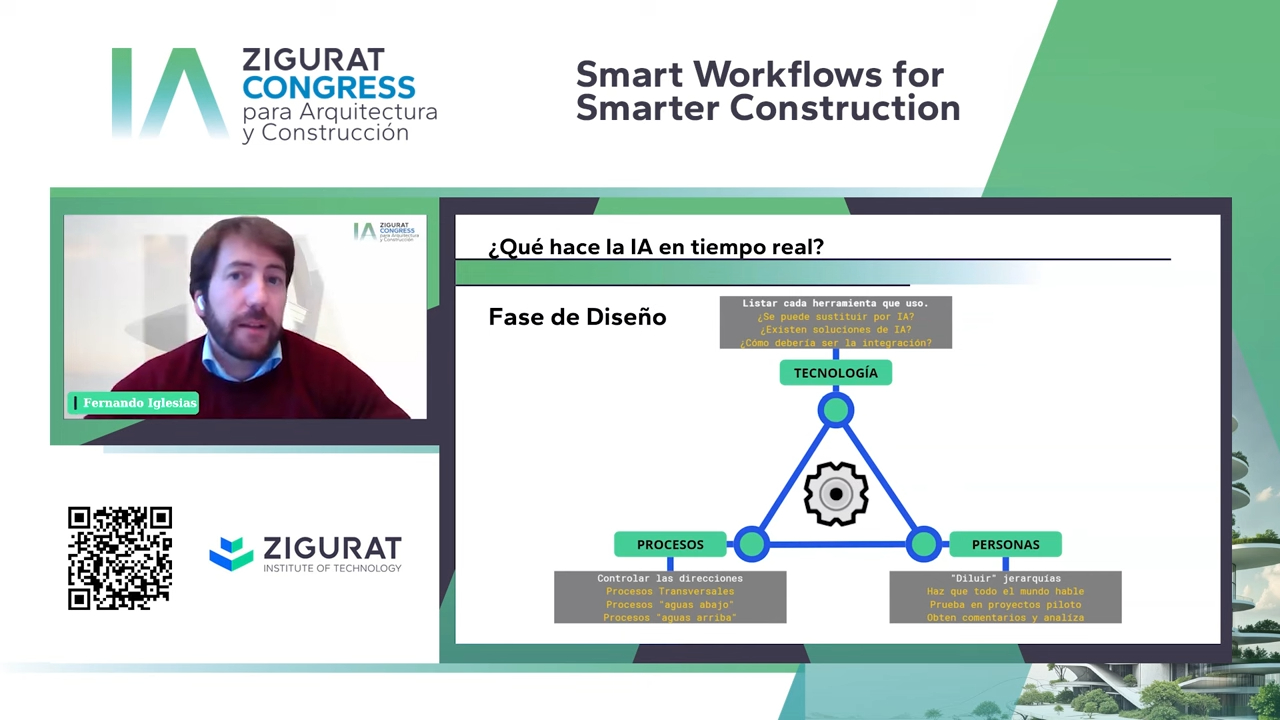
Carles Farré, co-founder of AECOTECH, described how tailored automation powered by generative AI agents is making on-site workflows more objective and traceable.
Meanwhile, Francisco Carmona, Director of Infrastructure at Quantia Ingeniería y Consultoría and faculty member for several ZIGURAT master’s programmes, presented a predictive model for energy consumption based on machine learning, implemented using tools such as KNIME.
The Spanish session concluded with a real case study developed by ZIGURAT alumni, integrating AI, 4D BIM planning, and collaborative tools like Microsoft 365 in a construction project in Porto.
Interoperability, Computer Vision and Ethical Challenges
The Portuguese-language session featured Ítalo Guedes, Academic Director of the Master em Inteligência Artificial para Arquitetura e Construção (delivered in Portuguese), and professor at the Federal University of Pernambuco. Guedes conducted a live demonstration on training computer vision models to detect the use of personal protective equipment on construction sites. “AI allows us to go beyond identifying risks and actually prevent them with real-time data processing,” he stated.
Rogério Lima, co-director of the same programme, explained how tools like ALICE Technologies and ConstruFlow enable AI implementation across all phases of project management.
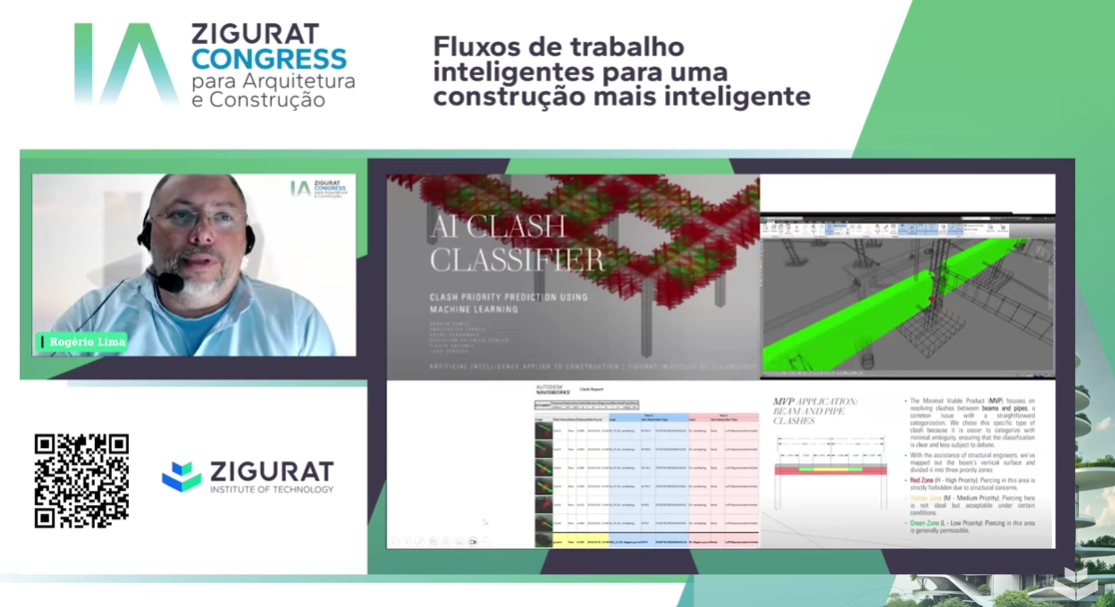
Jordana de Castro Rosa, BIM Manager at WSP, presented two solutions developed by her team — AI2Speckle and Ecomatic — that automate design processes and integrate sustainability data into Revit via spreadsheets.
Antônio Cavalcanti closed the session with a reflection on AI’s societal impact: “Artificial intelligence won’t replace jobs, but someone who knows how to use it will,” he warned.
Next Stop: ZIGURAT Summit 2025 in Barcelona
This inaugural online congress reflects ZIGURAT’s commitment to sharing cutting-edge knowledge and training professionals ready to lead the digital transformation in architecture, engineering and construction.
ZIGURAT’s next major event on Artificial Intelligence will be the ZIGURAT Summit 2025, to be held in person in Barcelona on 19 June. Under the theme “Entering the Age of AI”, the Summit will gather more than a hundred international professionals at Valkiria Hub Space to explore the real impact of AI on AECO processes and professional profiles.
As the speakers at the AI Congress agreed, AI is already making a tangible difference in energy efficiency, productivity, and the quality of the built environment. “Artificial intelligence is already part of the present. Adapting quickly is essential to remain competitive — and ultimately, to lead the transformation ahead,” said Varun Bhartiya.
Indeed, there’s no doubt: AI is here — and it’s already part of our professional routines.
